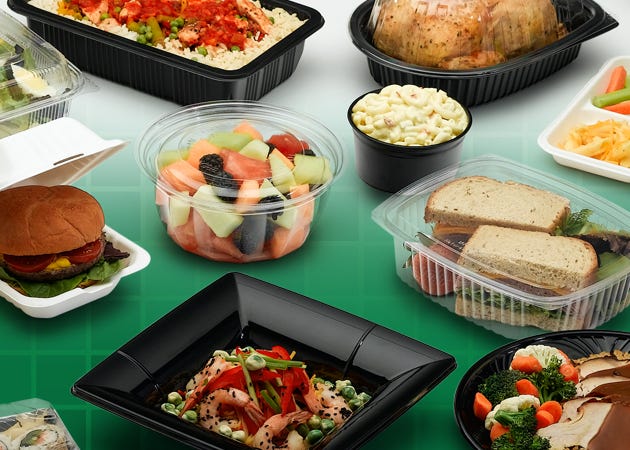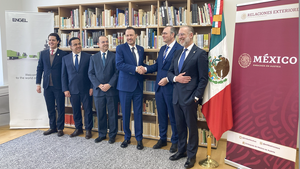New survey claims to dispel foodservice packaging recycling myths
There's a common perception out there that most packaging material is not recyclable and is destined to spend eternity in landfills. Another perception is that one's local community does not accept foodservice packaging. Well, a new survey commissioned by the Foodservice Packaging Institute (FPI) finds widespread but varied acceptance of foodservice packaging by material recovery facilities.
March 27, 2014
There's a common perception out there that most packaging material is not recyclable and is destined to spend eternity in landfills. Another perception is that one's local community does not accept foodservice packaging. Well, a new survey commissioned by the Foodservice Packaging Institute (FPI) finds widespread but varied acceptance of foodservice packaging by material recovery facilities.
 "We are encouraged by the number of material recovery facilities already accepting various foodservice packaging," said FPI President Lynn Dyer. "We have found that both the industry and consumers often think these products are not recycled. This study not only refutes that assumption but shows promise for increased acceptance."
"We are encouraged by the number of material recovery facilities already accepting various foodservice packaging," said FPI President Lynn Dyer. "We have found that both the industry and consumers often think these products are not recycled. This study not only refutes that assumption but shows promise for increased acceptance."
Responses from nearly 70 material recovery facilities, called MRFs, in the U.S. and Canada showed that the three most accepted products are cup sleeves, pizza boxes and paper carryout bags, with rigid plastic items such as cups and takeout containers being accepted by a majority of MRFs.
Resource Recycling Systems conducted the survey for FPI's Paper Recovery Alliance and Plastics Recovery Group to identify baseline acceptance levels and measure future progress. Using 19 specific types of packaging including cups, containers, boxes and bags made from different plastic and paper-based materials, the survey also sought to identify factors affecting MRFs' acceptance of packaging. Responses pointed to the availability of end markets for the recovered materials as the greatest driver of acceptance.
"This benchmark study also shows that we're on the right track with our systemic, MRF-to-market approach to increasing recovery of foodservice packaging," said Dyer.
The full report, entitled Acceptance of Foodservice Packaging by Material Recovery Facilities in the U.S. and Canada, is available to members of the two recovery groups. Non-members may find a two-page survey overview as well as additional information on FPI's recovery projects at fpi.org/stewardship.
I took a look at the two-page survey and here are items to note for plastic products:
Rigid plastic items such as cups and takeout containers made from polystyrene, polypropylene and PET had the second highest acceptance ratings, between 50 and 70 percent of the MRFs included, however some limitations (such as color) applied.
Cups, beverage carriers, containers and egg cartons made from coated paper, molded pulp and/or polystyrene foam had the lowest acceptance rates at under 50 percent of the MRFs included in the study.
The FPI stated that "while this is a small survey and not intended to substantiate claims of recyclability in compliance with the Federal Trade Commission's 'Green Guides,' it shows promise that a number of items are in fact reaching thresholds that might allow these products to be labeled 'recyclable' if sufficient access rates are established."
About the Author(s)
You May Also Like


